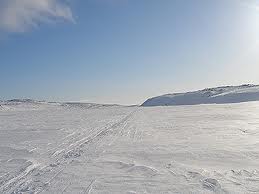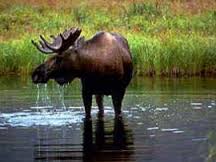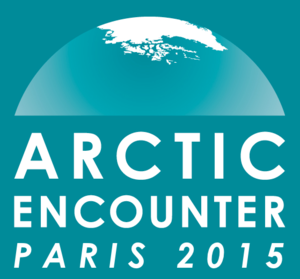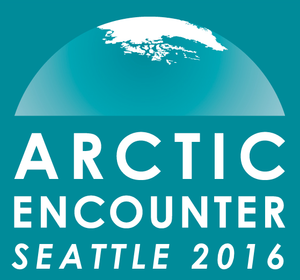|
|
|
|
|
|
|
|
Today's Congressional Action:
The House and Senate are not in session.
|
Wildlife Photographer of the Year: Canadian Wins With Striking Foxes Photo. A Canadian doctor who captured a deadly encounter between a red fox and an Arctic fox in the wilds of Northern Manitoba has been named Wildlife Photographer of the Year for 2015. Don Gutoski, an accident and emergency physician from London, Ont., and amateur photographer, was named winner of the annual international competition developed and produced by the Natural History Museum in London, U.K., Tuesday evening. His photo beat out 42,000 other entries from 96 countries. CBC News
 What Exxon Knew About Global Warming's Impact on the Arctic. Back in 1990, as the debate over climate change was heating up, a dissident shareholder petitioned the board of Exxon, one of the world's largest oil companies, imploring it to develop a plan to reduce carbon dioxide emissions from its production plants and facilities. The board's response: Exxon had studied the science of global warming and concluded it was too murky to warrant action. The company's "examination of the issue supports the conclusions that the facts today and the projection of future effects are very unclear." Alaska Dispatch News What Exxon Knew About Global Warming's Impact on the Arctic. Back in 1990, as the debate over climate change was heating up, a dissident shareholder petitioned the board of Exxon, one of the world's largest oil companies, imploring it to develop a plan to reduce carbon dioxide emissions from its production plants and facilities. The board's response: Exxon had studied the science of global warming and concluded it was too murky to warrant action. The company's "examination of the issue supports the conclusions that the facts today and the projection of future effects are very unclear." Alaska Dispatch News
 Sun Sets on Shell Oil's Arctic Quest. Shell Oil's Polar Pioneer rig left Alaska's Dutch Harbor for Port Angeles, Washington, on Wednesday. Sun Sets on Shell Oil's Arctic Quest. Shell Oil's Polar Pioneer rig left Alaska's Dutch Harbor for Port Angeles, Washington, on Wednesday.
The energy giant's other Arctic rig, the Noble Discoverer, left Dutch Harbor for Everett, Washington, on Monday. Other ships in Shell's Arctic fleet are expected to leave Alaska over the next couple of weeks, and the company has not disclosed the fate of the 400 employees who have worked on the project in Anchorage. Alaska Public Radio
Scientists Find a Toxic Threat Lurking Under the Melting Arctic. Climate change is thawing Arctic ground that was once frozen all year, making it a potentially potent new source of toxic mercury pollution in the region, according to a new study. The research, published Friday in the journal Science, found that Arctic permafrost contained high levels of the bacteria that transform inorganic mercury into hazardous methyl mercury. AOL News
 Moose Populations on Alarming Decline in North American Parks. An alarming number of moose calves are failing to survive their first year, pushing moose populations into decline in many parts of North America. Why that's happening isn't clear, although a variety of factors are certainly contributors, says wildlife biologist Seth Moore. These include disease, predators and climate change. CBC News Moose Populations on Alarming Decline in North American Parks. An alarming number of moose calves are failing to survive their first year, pushing moose populations into decline in many parts of North America. Why that's happening isn't clear, although a variety of factors are certainly contributors, says wildlife biologist Seth Moore. These include disease, predators and climate change. CBC News
US: Scientists Harness Indigenous Knowledge to Combat Arctic Disasters. When tracking climate change in the Arctic, scientists rely not just on satellites and software but tap the knowledge of indigenous hunters who have lived in the frozen north for generations. To help them understand shifts underway in parts of the far north, including the increasing frequency of disasters, NASA Emeritus Scientist Nancy Maynard and her team are working with reindeer herders in Scandinavia to track changing temperature and precipitation patterns. Prevention Web
|
Legislative Action
No Arctic legislation was formally considered yesterday.
|
|
Future Events
2015 Arctic Circle Assembly, October 16-18, 2015 (Reykjavik, Iceland). The Arctic Circle is the largest global gathering on the Arctic. It is attended by heads of state and governments, ministers, members of parliament, officials, experts, scientists, entrepreneurs, business leaders, indigenous representatives, environmentalists, students, activists, and others from the growing international community of partners and participants interested in the future of the Arctic. The Arctic Circle highlights issues and concerns, programs, policies and projects; it provides platforms for dynamic dialogue and constructive cooperation. While the plenary sessions are the responsibility of the Arctic Circle, the breakout sessions are organized by various participating partners in their own name and with full authority over the agenda and the choice of speakers.
** New this week** Invitation to Meet with ARCUS, October 17, 2015 (Reykjavik, Iceland). During the Arctic Circle conference, the Arctic Consortium of the US (ARCUS) will host a presentation on Arctic research, ARCUS, new membership categories, and opportunities for collaboration. Please email Dr. Robert Rich, ARCUS Executive Director, for more information.
**New this week** Charting Japan's Arctic Strategy, October 19, 2015 (Washington, D.C., USA). Japan's presence in the Arctic is not new, but it has been limited mostly to scientific research. Japan has stepped up its engagement after it gained observer status to the Arctic Council and appointed its first Arctic ambassador in 2013. However, Japan has yet to flesh out a full-blown Arctic strategy that identifies the range of its national interests in the polar region and actionable strategies to achieve them. The Arctic offers Japan an opportunity to expand cooperation with the United States in an uncharted area, poses hard questions on how to interact with Russia in the post-Ukraine era, and creates the interesting proposition of whether China and Japan can cooperate in articulating the views of non-Arctic states. Registration is required. The event will webcast as well.
Penn State University will host an afternoon panel of national experts in the Arctic and in US interests in the region. Building on the law of the sea expertise of VADM James Houck (former Navy Judge Advocate General and now Interim Dean of the Law School and School of International Affairs at Penn State) and the knowledge of the changing Arctic environment of RADM David Titley (former head of the Navy's Task Force Climate Change and now professor from practice in the Department of Meteorology), and Fran Ulmer, Chair of the US Arctic Research Commission (keynote speaker), the panel brings together experts in science, law, policy, and Arctic diplomacy. We see these experts individually at events in Washington, but Penn State is doing a great service in bringing them altogether at one event in an region that seldom gets such first hand expertise.
The Polar Oceans and Global Climate Change, November 3-6, 2015 (La Jolla, California USA). The American Polar Society will host this Symposium at Scripps Institution of Oceanography. A flyer with a partial list of presenters is available on the Society's website (americanpolar.org) and from the Society's Membership Chairman by email.
Forum for Arctic Modeling and Observational Synthesis Meeting, November 3-6, 2015 (Cape Cod, MA, USA). On November 3rd, the 2015 School for young scientists will consider "Regional Oceanography of the Arctic marginal seas" with lectures covering major features of atmospheric, sea ice and oceanographic regimes of the: Bering, Chukchi, Beaufort, East-Siberian, Laptev Sea, Kara, Barents and Nordic seas. On November 4-6, the meeting portion will summarize project accomplishments for the last 3 years of activities and will focus on the formulation of scientific questions and directions for FAMOS future research (2016-2019) to: (a) improve Arctic modeling, employing very high resolution models; (b) develop and test new arctic monitoring/observing systems and (c) improve predictions of Arctic environmental parameters with reduced uncertainties.
Due North: Next Generation Arctic Research & Leadership, November 5-8, 2015 (Calgary, Alberta, Canada). The Association of Canadian Universities for Northern Studies (ACUNS) will convene an interdisciplinary conference of early career scientists working on Arctic issues. Topics will include: Arctic Communities, Arctic Sustainable Development, Arctic Wildlife, Ecosystem and Biodiversity, Arctic Food Security, Arctic Landscapes, Climate Change and Adaptation, Disaster Risk Management, Policy, Politics and Leadership, Arctic Environment (Data and Techniques), Arctic Resources, and Future of Arctic.
Matchpoints Seminar, November 12-13, 2015 (Aarhus, Denmark). The purpose of the conference is to provide a forum for policy-makers and academics to deliberate on how the security, resilience and sustainability of the globalized Arctic region and its peoples may be enhanced, and what instruments of governance may most suitably contribute. The conference will spell out (1) how the different relevant dimensions of security (military, economic, environmental, energy and human security) manifest themselves in the governing / governance arrangements in the Arctic; (2) how the challenges associated with each manifest themselves, individually and together; and (3) what forms of governing arrangements can best help to address the challenges. The conference will also focus on (4) how the Nordic countries and nations, including Greenland, the Faroe Islands and Aaland Islands, may contribute to the peace, stability and prosperity of the Arctic region through collaborative efforts based on their shared social, human, environmental and democratic values.
Arctic Observing Open Science Meeting, November 17-19, 2015 (Seattle, Washington). The Arctic Observing Open Science Meeting will be 2.5 days and held at the Hyatt at Olive 8 in Seattle, Washington. The conference will bring together individuals and teams involved in the collection, processing, analysis, and use of observations in the Arctic - from academia, agencies, industry, and other organizations. The meeting will be convened as a combination of plenary talks, parallel science sessions, and a poster session. The agenda and registration information will be forthcoming.
In the Spirit of the Rovaniemi Process 2015, November 24-26, 2015 (Rovaniemi, Lapland, Finland).When the Arctic Environmental Protection Strategy, the so-called Rovaniemi Process, was adopted in 1991, it aimed at overcoming divisions and turning the zone of Cold War military tensions into a region of peace and co-operation. In this joint effort focusing on the protection of environment, and later, sustainable development, the Arctic states supported by indigenous organizations laid grounds for institutionalized collaboration and the emergence of Arctic regional identity. The second international conference will bring together decision-makers, scholars, artists, designers and students to address these questions and discuss the Arctic in global, regional and local perspectives.
Arctic Encounter Paris (AEP 2015), December 11-12, 2015 (Paris, France) (During the UN Convention on Climate Change - COP21). The Arctic Encounter Paris will take place at the French Senate at Luxembourg Palace and the  French Military College, École Militaire, in Paris, France, on the final days of the monumental United Nations Convention on Climate Change (COP21) where thousands of global citizens and government delegates will be gathered to deliberate the world's response to our changing planet in Paris. The AEP is the only Arctic policy side event currently planned to take place during the UN Convention. A reception will take place following the closing panel. French Military College, École Militaire, in Paris, France, on the final days of the monumental United Nations Convention on Climate Change (COP21) where thousands of global citizens and government delegates will be gathered to deliberate the world's response to our changing planet in Paris. The AEP is the only Arctic policy side event currently planned to take place during the UN Convention. A reception will take place following the closing panel.
This symposium is part of an ongoing initiative of the National Academies of Science Polar Research Board to expand public understanding of why the dramatic changes affecting the Arctic region ultimately matter to us all. The agenda features engaging presentations and discussions with top Arctic science and policy experts, and displays and interactive exhibits that illustrate Arctic change and its global impacts. The event is free and open to the public. There are sponsorship opportunities, and a call for exhibitor applications (by Oct.31, 2015). Audience space is limited, so register today; and please encourage your friends, neighbors, and colleagues to participate-as our goal is to reach well beyond the small circle of specialists who typically attend Arctic-themed events in the DC area. The U.S. Arctic Research Commission is helping to sponsor this event.
 Building upon the preceding Arctic Encounter event in Paris, the third annual Arctic Encounter Symposium (AES) in Seattle, Washington will convene policymakers, industry leaders, and leading experts to confront the leading issues in Arctic policy, innovation, and development. As the largest annual Arctic policy event in the United States, the AES mission is to raise awareness, engage challenges, and develop solutions for the future of a region and a people. The two-day program includes two keynote luncheons, expert plenary sessions, break out sessions, a networking cocktail reception and seated dinner. A closing reception will take place at the conclusion of the program. Building upon the preceding Arctic Encounter event in Paris, the third annual Arctic Encounter Symposium (AES) in Seattle, Washington will convene policymakers, industry leaders, and leading experts to confront the leading issues in Arctic policy, innovation, and development. As the largest annual Arctic policy event in the United States, the AES mission is to raise awareness, engage challenges, and develop solutions for the future of a region and a people. The two-day program includes two keynote luncheons, expert plenary sessions, break out sessions, a networking cocktail reception and seated dinner. A closing reception will take place at the conclusion of the program.
|
|

  
4350 N. Fairfax Drive, Suite 510
Arlington, VA 22203, USA
External links in this publication, and on the USARC's World Wide Web site ( www.arctic.gov) do not constitute endorsement by the US Arctic Research Commission of external Web sites or the information, products or services contained therein. For other than authorized activities, the USARC does not exercise any editorial control over the information you may find at these locations. These links are provided consistent with the stated purpose of this newsletter and the USARC Web site.
|
|
|
|
|
|
|
|
|